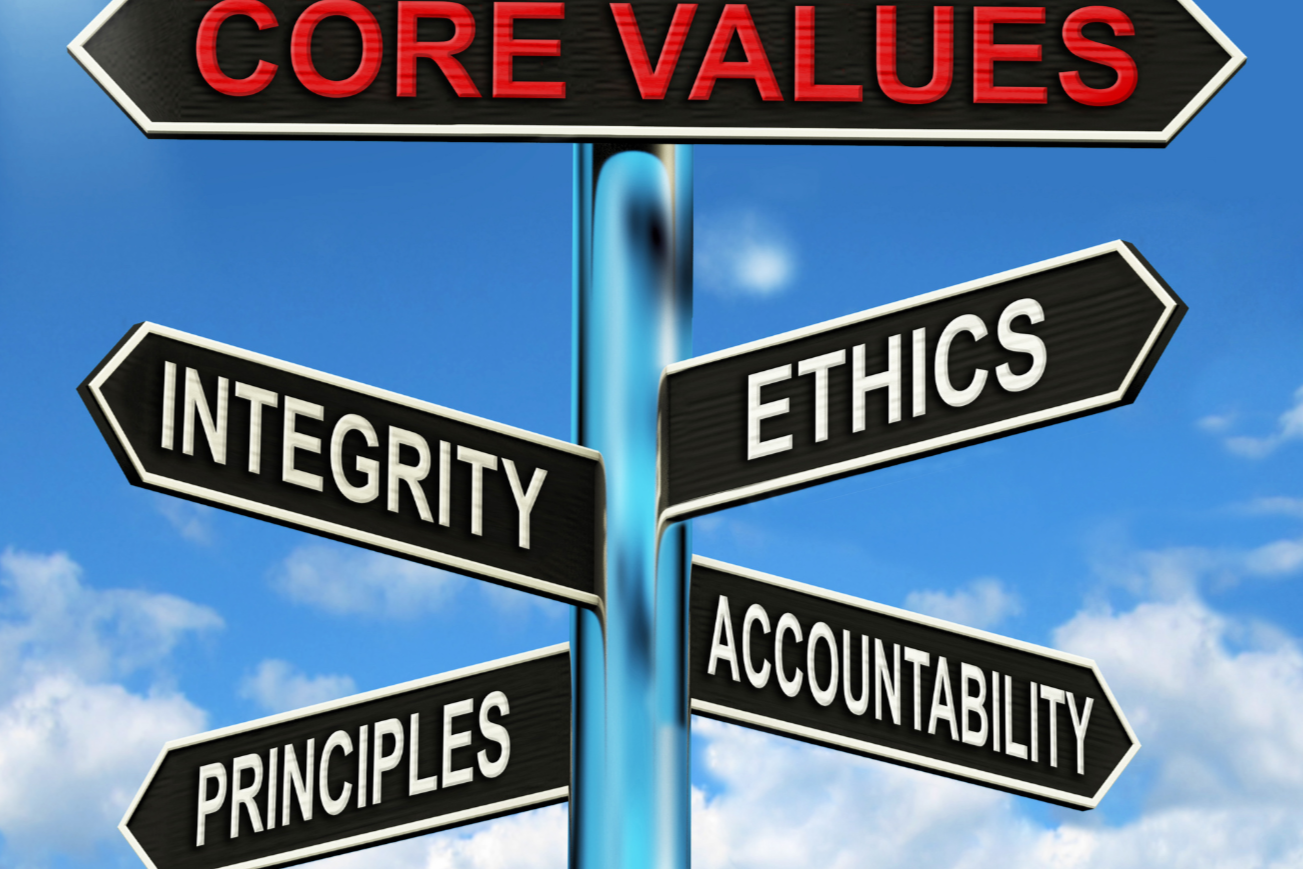Understanding Moral Injury: A Q&A with Emily Labutta, APC
Written by Melissa Schenkman, MPH, MSJ
Moral injury is a concept that gained widespread attention during the COVID-19 pandemic, particularly among healthcare workers. However, this psychological wound extends far beyond medical settings and affects people across various professions and life circumstances. Emily Labutta, a licensed associate professional counselor with Attento Counseling in the metro Atlanta area, shares her expertise on this important but often misunderstood topic.
What is moral injury and how did the concept come about?
Emily: Moral injury occurs when we are forced to do something, forced to not do something, or forced to observe something that goes against our values. We see this in hospital settings, crisis care management, with EMS workers, law enforcement, and veterans. But it's not limited to these professions—we could also see this in corporations at work when your boss says "do X" and now you're stuck between doing something that violates your values or losing your job.
The concept gained prominence during the pandemic as healthcare workers faced impossible choices, but it's always existed wherever people find themselves in situations that conflict with their core values.
What does it mean to sustain a moral injury?
Sustaining a moral injury is similar to how we understand PTSD development. Just like someone can experience a traumatic event but not necessarily develop PTSD, someone can be in a morally challenging situation but not necessarily sustain moral injury. It depends on factors like whether we had support afterwards and how our psychological system responded to the event.
If you are in one of those situations where you feel forced to do, not do, or observe something against your values, and then develop shame, guilt, and this sense of identity questioning—"who am I now?"—that's the moral injury piece. It's our psychological response to what happened to us.
What are some of the common symptoms of moral injury that people experience but may not recognize?
We see some overlap with symptoms of burnout and vicarious trauma, which makes it sometimes tricky to parse out. Not everyone is going to recognize it for what it is because it can look like you're just tired of seeing everything you've been seeing without enough care coming back to you.
But moral injury is much more subtle and is characterized by shame, guilt, and identity questioning. When we see more shame and guilt specifically, that's more indicative of moral injury. There's also this questioning of "I don't know who I am anymore"—you've been put in enough situations over enough time that this slowly wears down your idea of yourself, your values, and how you show up in the world.
How does moral injury differ from PTSD?
You could be in a situation that is both traumatizing and morally injurious, or just one or the other. When we think of trauma, we think of things that take away our sense of autonomy, agency, and control—something that threatens us on some level. The underlying effects to the nervous system are fear and loss of control. It's very much shaking up the nervous system.
Whereas moral injury is shaking up your values and how you show up in the world. The biggest distinction is that if you see more shame and guilt, that's more moral injury. If you see more fear and hyper or hypo arousal in the nervous system, that's more trauma-related.
How does moral injury overlap with PTSD?
The overlap occurs because both trauma and moral injury cause us to question things. When bad things happen to us, trauma causes us to question our worldview: "What is this world we live in? What is my place in it? Is this a safe place? Am I safe?"
Similarly, moral injury causes us to question our values and how we get to show up in pursuing them or not. Both can lead to questioning who we are and our place in the world, which is why they can be difficult to distinguish and why someone might experience both simultaneously.
What makes moral injury complicated to address both as individuals and within the context of the individuals or entity from which we sustained it?
What's particularly tricky about moral injury compared to trauma is that with trauma, often (but not always) someone has sustained trauma and is then out of that situation. We can work on reteaching the body "you are safe now" and processing through the past event.
With moral injury, oftentimes these are wounds sustained in a work environment. So you're really forced into this place of asking: "If you want to keep your job, does that mean you keep getting injured? If you want to do your job, which presumably you felt called to in some way, now you're risking that."
We actually saw a lot of nurses leave the field after the COVID-19 pandemic, and I have no question that some of that was, at least in part, from moral injury and sheer exhaustion sustained during the pandemic.
What are some of the potential impacts of sustaining one or more moral injuries in your career?
We see shame and guilt coming out, along with questions of identity. When we have done something, participated in, not participated in, or observed something that goes against who we think we are, our brains try to reconcile this cognitive dissonance.
We can either resolve this as "okay, I am still who I am and this thing is just a thing in time with extenuating circumstances outside of our control," or sometimes we conclude "well, maybe I am a bad person. If I did this bad thing, maybe I'm not who I thought I was."
This can feel very jarring because most of us don't like to think of ourselves as bad people. But even if you just think of yourself as one way and now are suddenly unmoored from that idea of yourself, you're left with "well, who am I? Do I really know anything?" It can snowball into questioning everything: "How do I know anything? How have I figured out who I am? Maybe I'm wrong about so much more."
In your experience as a mental health professional, why is treating clients who have experienced moral injury complicated and tricky?
It can be tricky because when we think of therapy, there's a certain overarching umbrella of "just pursue your values, let's be mindful about what's happening, how would you like to think about yourself positively?" That's the surface level.
But with moral injury, we're dealing with wounds that have created shame. Shame tells us to hide, that there's something wrong with us, that we won't be liked, we're not safe, we need to hide, we're not accepted. So to be in a therapeutic relationship where somebody else is showing unconditional positive regard toward you despite your shame—despite this thing that you feel you had no choice but to do or not do—that in and of itself can be incredibly healing.
It becomes an onus on the practitioner to recognize that people do good, bad, hard, complicated things all the time. As humans, we try to put people and actions into boxes—this is right, this is wrong, this person's good, this person's bad. But life is a lot more complicated than that.
Looking at somebody, meeting them in their pain and saying "hey, I still accept you, value you, see you as the person you want to be and can be, despite the fact that we live in complicated circumstances that sometimes put things outside of our control"—that is a much more nuanced and relational conversation.
What are some sustainable, long-term coping strategies that people can use to navigate moral injury?
I approach this from different therapeutic lenses:
Narrative Therapy: When we have sustained a moral injury, it's almost like you're reading a book and there's an entire chapter that's in red ink, underlined, bolded. It's there and it's glaring. Narrative therapy tells us to remember that there's a whole book—there's more to your story than just that chapter.
Acceptance and Commitment Therapy (ACT): This approach focuses on cultivating mindfulness about what happened and cultivating acceptance, not agreement, not "I'm glad this happened," but accepting that there is a wound, like accepting there's a scar on your arm. Then we ask: what are my values and how do I take sustained action toward my values in the ways I can, in the ways I have control over? It's about exerting agency where we can.
Internal Family Systems (IFS): This approach recognizes that we have different parts of ourselves—parts that are wounded and parts that are protectors. With moral injury, there's typically a very wounded part that says "no, I didn't want to do that," and a very protective part that tries to make sure we know we did something bad. That protective part has the microphone going "you did something bad, you're so wrong, that was terrible, you have to make sure you don't do this again."
From an IFS lens, we learn our different parts and how they're showing up to try to protect us. Then we introduce ourselves to the picture and see if those parts want to show up differently. We still want to be protected and not sustain injuries, but can these worried parts show up in a different way? We take that self in the driver's seat, acting toward our values, and we can rewrite the rest of the story.
Want to hear more from Emily? Check out the YMyHealth podcast on our YouTube channel or your favorite streaming platform!


